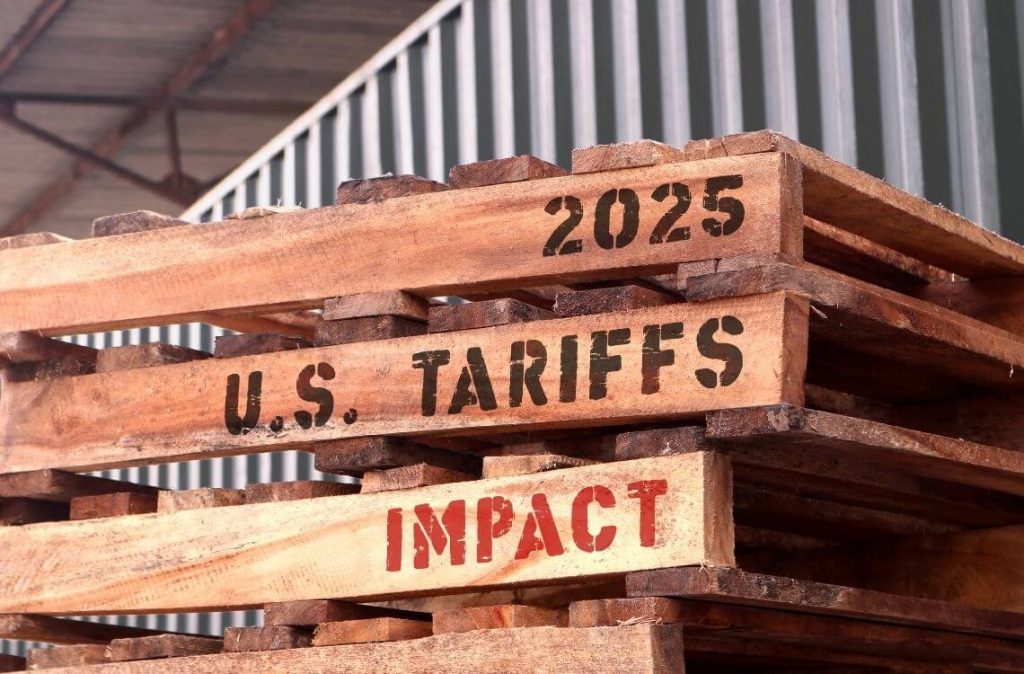What does the U.S. tariffs, trade wars, and President Donald Trump have to do with your baby’s bottle steriliser or stroller in Malaysia?
More than you might think.
Recently, the Trump administration announced a sharp increase in tariffs on Chinese goods, with some rates reaching up to 125%.
While it sounds like an American issue, this global shake-up could have significant impact for Malaysian parents.
From the price of imported baby gear like your baby carriers to supply chain delays, here’s how the ripple effects might show up in our everyday lives and what we can do about it.
What Are Tariffs, and Why Should Parents Care?
Tariffs are essentially taxes that governments place on goods imported from other countries.
In this case, the U.S. is targeting a wide range of products made in China, including many items commonly found on baby checklists, such as toys, car seats, baby monitors, and even diapers.
While the goal is to encourage more U.S. made products, the reality is that many essential items are still manufactured in China.
This means businesses, especially small ones, are being hit with higher costs and they’re passing those costs on to consumers.
How American Parents Are Being Affected
Small business owners are already speaking out about the impact.
For instance, Beth Benike, owner of Busy Baby, saw tariffs on her products surge from 30% to 125%, making imports unaffordable and jeopardising her contracts with major retailers like Walmart.
For parents in the U.S., this means paying significantly more for everyday baby products.
Car seats that once cost around $59 may now retail for $120 or more.
Bigger companies are starting to shift production to other countries like Vietnam and India. But these changes take time and in the short term, it’s the families like us who feels the pinch (or more accurately, punch).
What This Means for Malaysian Parents
Now, mummies and daddies, you might be wondering: how does a United States policy affect us here in Malaysia?
Here’s the bigger picture:
-
We’re part of the same global supply chain.
Malaysian retailers, online platforms, and baby fairs often source products from the same manufacturers or distributors affected by U.S. tariffs. When production costs go up globally, we may see price hikes here too. -
Expect more price fluctuations and product shortages.
As international brands scramble to shift manufacturing out of China, there may be short-term disruptions. Delays, reduced availability, and increased shipping fees could affect what’s on our shelves and at what price. -
Some of us love imported brands.
Based on supply and demand, it is safe to say many Malaysian parents rely on Western-designed baby gear for safety, innovation, and quality. But niche and premium baby products from U.S. brands may become harder to find or more expensive if they can’t afford the new tariffs or move production fast enough. -
It could influence regional trade dynamics.
There’s a silver lining. Countries like Malaysia might benefit in the long run if manufacturers move their operations closer to home. But until then, the transition will likely bring temporary uncertainty.
What Malaysian Parents Can Do
-
Shop local where possible
There are some excellent Malaysian and Southeast Asian brands producing quality baby gear. Supporting these businesses not only helps the economy but can also save you money and shipping hassle. -
Plan your purchases ahead
If you’re expecting, don’t wait until the last minute. Some imported essentials may face restocking delays or sudden price spikes. -
Do your research
If you love certain international brands, check if they’re affected by the tariff hikes. Some may have already moved their manufacturing, while others might face ongoing issues. -
Be aware of trade trends
Understanding how global trade affects us helps us make smarter, more informed decisions for our families. As consumers, we can influence demand and support businesses that prioritise accessibility and sustainability.
From Washington to Your Shopping Cart
Between managing a household, meeting deadlines, juggling school runs, sorting out breakfast, lunch, dinner – and don’t forget the endless supply of snacks, it’s easy to let global news like tariffs and trade wars fade into the background.
But here’s the thing: what happens thousands of miles away can quietly show up in the price of your toys, stroller or the delay of your baby’s bottle delivery.
By staying just a little informed and planning ahead, we can be better prepared for these changes and maybe even uncover some amazing local alternatives along the way.
Disclaimer: The information provided in this article is for informational purposes only and should not be considered as medical advice from Motherhood. For any health-related concerns, it is advisable to consult with a qualified healthcare professional or medical practitioner.
For more insightful stories and fun recipes, stay tuned to Motherhood Story!
